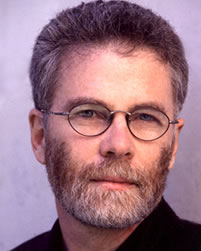Dr. Gregory Stock
Gregory Stock, Ph.D., MBA is a biophysicist, best-selling author, biotech entrepreneur, and the director of the Program on Medicine, Technology and Society at UCLA’s School of Medicine. He has written extensively on the implications for society, medicine and business of the human genome project and associated developments in molecular genetics and bioinformatics. His interests lie in the scientific and evolutionary as well as ethical, social and political implications of today’s revolutions in the life sciences and in information technology and computers.
Greg has dealt with topics relating to privacy issues in healthcare and genomics; advances in reproductive biology and embryo screening; future possibilities in human germline engineering and anti-aging interventions; and scenarios of future human evolution. His speeches, writings and positions reflect a vision of pragmatism if not enthusiasm about adapting to the profound and difficult shifts these new technologies will bring and avoiding unnecessary delay in the development of new therapeutics and medical and biological interventions emerging from progress in the life sciences.
He also is the CEO of Signum Biosciences, a biotech company developing therapeutics for Alzheimer’s and other diseases as well as health and wellness agents. He sits on the editorial board of the American Journal of Bioethics and is in the department of Pediatrics at the UCLA School of Medicine. He is a member of the Board of Directors of Napo Pharmaceuticals, a publicly traded pharmaceutical company headquartered in San Francisco. He sits on the California Advisory Committee on Stem Cells and Reproductive Cloning and serves as the associate director for the Bioagenda Institute and the Center for Life Science Studies at the University of California at Berkeley.
Greg authored Redesigning Humans: Choosing our genes, changing our future, Metaman: The Merging of Humans and Machines into a Global Superorganism, The Book of Questions: Love & Sex, The Book of Questions: Business, Politics, and Ethics, The Book of Questions, and The Kids’ Book of Questions: Revised for the New Century, and coedited Engineering the Human Germline: An Exploration of the Science and Ethics of Altering the Genes We Pass to Our Children.
He was an early force in considering the implications of human germline engineering and human enhancement. Through the Program on Medicine, Technology and Society, which he founded at the UCLA School of Medicine, he organized an influential 1998 conference at UCLA: “Engineering the Human Germline”, which included a panel of James Watson, French Anderson, Lee Hood and other major figures in the life sciences. The event, which attracted considerable media attention and opened up broad debate on what was then a largely taboo topic, was covered on the front page of the New York Times.
Through another seminal UCLA conference, Milestones on Aging, Greg organized, he helped legitimize research to significantly extend human longevity. The event led to a follow conference he co-hosted at Berkeley with Bruce Ames and Aubrey de Grey, who went on to found the Methuselah Foundation, an organization that has aggressively promoted research on life extension. The activity of the MTS Program was also critical in establishing UCLA’s Center on Society and Genetics, which actively explores broad policy issues in the genomics arena.
Greg earned an MBA from Harvard Business School in 1987, where he was a Baker Scholar and won the Freund-Porter Entrepreneurship award. He completed a doctorate in biophysics from Johns Hopkins University in 1977, where he earned a BS and MS in 1971.
Read his LinkedIn profile.
